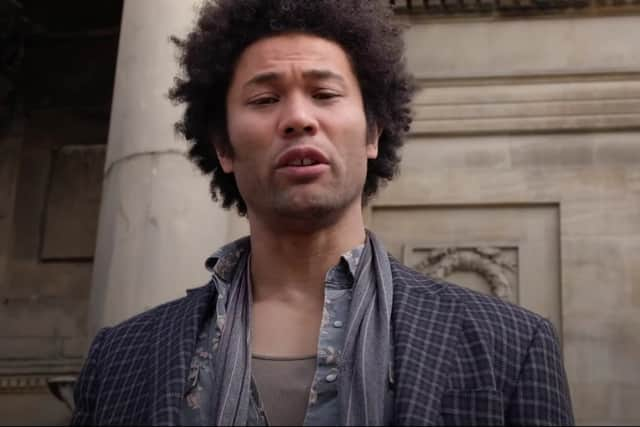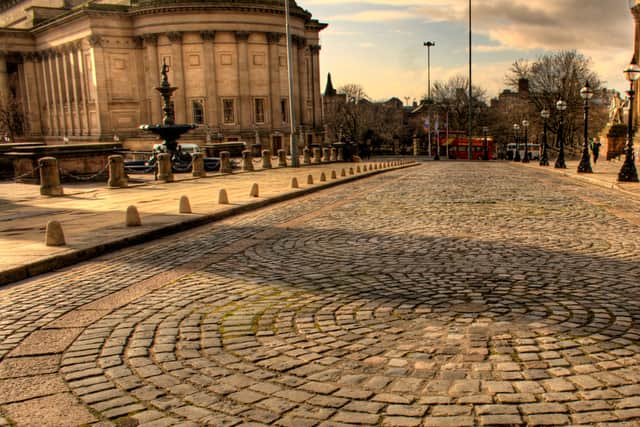‘It’s about time’ - Liverpool streets with links to slavery acknowledged with bronze plaques
and live on Freeview channel 276
Liverpool streets are to have their links with slavery explained for the first time through a series of bronze plaques.
On Tuesday, the first plaque will be unveiled on William Brown Street near to the World Museum.
Advertisement
Hide AdAdvertisement
Hide AdBrown, whose family profited from the slave trade, spent £40,000 on the building of the museum and library, and the street was renamed William Brown Street in thanks for his generosity.
Loading....
Liverpool City Council said it is the first of around ten streets to have an ‘Eric Scott Lynch Slavery Histories’ plaque - named in honour of the activist and historian who spent his life drawing attention to Liverpool’s links with slavery.
Through his family, he played a key role in identifying which areas of the city were directly linked with the slave economy and the growth of the city.
He passed away last year.
A list of streets was originally submitted by Laurence Westgaph, historian and founder of Liverpool Black History Research Group.
Advertisement
Hide AdAdvertisement
Hide AdLiverpool City Council said some of the streets under consideration include Falkner Street, Bold Street, Parr Street and Colquitt Street.
Liverpool City Council passed a motion in January 2020 to commit to the placing of plaques to improve understanding of the city’s heritage and its links to slavery.


Westgaph told LiverpoolWorld: “For me we have so many streets in the city connected to slavery but very few people have access to the information about them.
“Liverpool is a city full of so many statues and plaques to various important events, yet the slave trade, arguably the most important factor in the city in the 18th and 19th centuries had been forgotten.
Advertisement
Hide AdAdvertisement
Hide Ad"It’s about time this was acknowledged and a street plaque is one way to start in a way that is informative so people will know where the names came from and can discuss the history of slavery.”
Mayor of Liverpool, Joanne Anderson said: “This is a milestone moment for Liverpool in its reconciliation with its past.
“As a city we pledged to be open and transparent about this city’s role in the transatlantic slave trade, and the plaques are an important step forward.


“This understanding of our past is key, and only when we fully acknowledge and accept it, can we move forward.
Advertisement
Hide AdAdvertisement
Hide Ad“The unveiling takes place in the same month as Liverpool Against Racism – a powerful and unique event which will shine a spotlight on the racism and discrimination endemic in today’s society.
“I am proud to have two high-profile activities take place within the space of a month which address our past, but also look ahead to the future and spotlight progressive, impactful anti-racist practices.
“I’d like to take this opportunity to thank all those involved in making these plaques a reality and their commitment to telling the truth about Liverpool’s history.”
Eric Lynch’s son, Andrew, said: "These plaques stand testament to the educational work that my father Eric Scott Lynch carried out. Over many years, he strove to give the people of Liverpool a deeper understanding of the central role the city played in shaping the modern world.
Advertisement
Hide AdAdvertisement
Hide Ad“The enormous wealth generated by slavery and imperial interests built the city into a major trade hub and financed many of the industries that were to become the cornerstone of the industrial revolution.
“This reminds us that Liverpool is truly a world city, with the labour of Africans and people of African descent being a key part of our story."
Comment Guidelines
National World encourages reader discussion on our stories. User feedback, insights and back-and-forth exchanges add a rich layer of context to reporting. Please review our Community Guidelines before commenting.